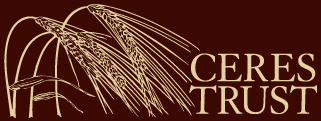Fostering complex soil food webs and building soil fertility with organic production: the potential of perennial wheat
Ceres Trust Research Grant
Investigators: Sieg Snapp, Professor, and Steve Culman, Post doc., Department of Plant and Soil Microbial Sciences, Michigan State University; Vicki Morrone, Organic farming specialist, Center for Regional Food Systems, Michigan State University
Collaborators: Tianna Dupont, Nematologist Penn State Univ; John Edgerton, Farmer; Martin Nagelkirk, Extension educator; Lee and Linda Prudy, Westwind Milling and farmers; Christine Sprunger, Student MSU; Howard Straub, Farmer
View/Download full report in Microsoft Word Format
Summary:
Organic farmers are looking for new ways to grow crops, and novel market opportunities afforded by new crops. Perennial cereals such as intermediate wheatgrass (Kernza) and perennial wheat have sparked a great deal of interest among organic growers who are interested in dual purpose crops that can be grazed in the spring and harvested for grain in the summer. The perennial nature of these crops – and the extensive rooting systems – will likely have outstanding benefits for soil organic matter and soil biota. Perennial grains could be an invaluable tool for organic farmers in the future, given the potential to support complex soil food webs, overall greater access to soil nutrients and soil water and thus superior ability to suppress weeds and build healthy soils.
This project is using minirhizotrons as windows belowground (see images below) and deep soil sampling to examine the roots and soil biology associated with a long-term project to develop perennial cereals for organic farmers in the upper Midwest. The most promising lines of the newly developed cereals intermediate wheatgrass and perennial wheat are being evaluated under organic and nitrogen fertilizer management at the W.K. Kellogg Biological Station in southwest Michigan. Also, we have added an observational site in central Michigan at the Mason Wheat Research farm, Michigan State University. Soil biological measurements include: respiration, enzymes, nematode communities, soil organic matter fractions and total soil carbon, and mycorrhizal fungi.
